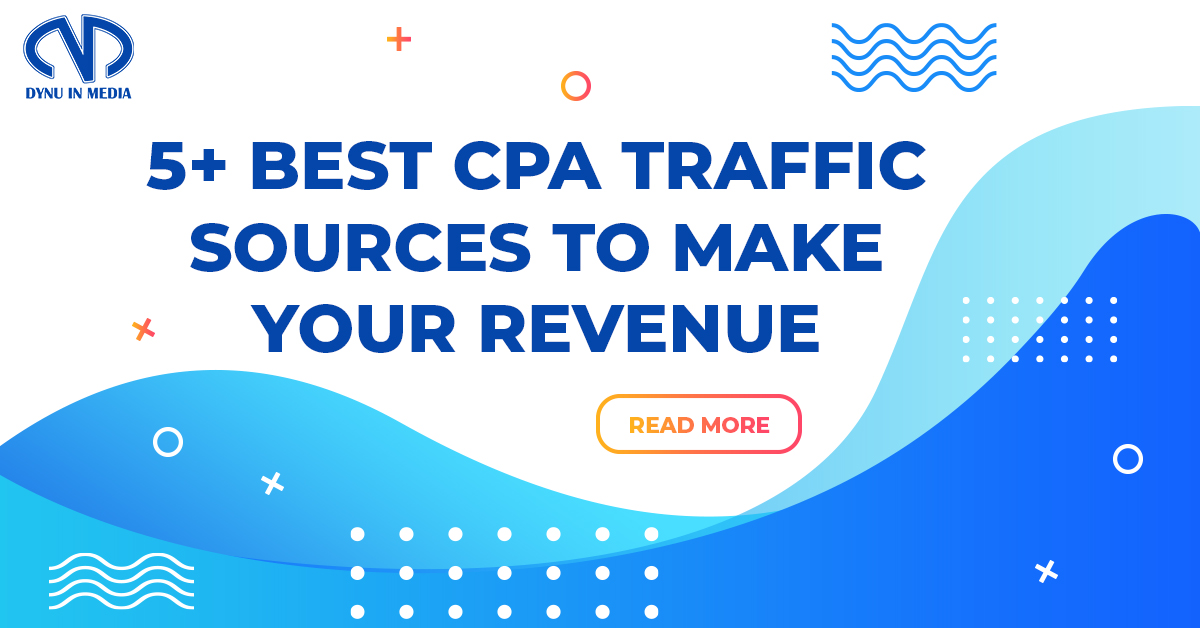What Is Affiliate Tracking? The Basic For Publishers In 2023
For about ten years now, affiliate marketing has grown super strong and is becoming a dominant business. Therefore, affiliate tracking is one of the most important keys to helping many publishers know whether their campaign works. Okay, let’s come up with this article, Dynu In Media will show you what affiliate tracking is and how to get started in the easiest way!

What Is Affiliate Tracking?
First and foremost, let’s find out: what is affiliate marketing tracking? Although many people are familiar with affiliate marketing, tracking in this field has been still confusing. Simply put, affiliate tracking is a way to help affiliates monitor and control users’ behaviors. This means that they can know everything about their customers operating on their affiliate links, such as clicking, fill the form, submitting, or downloading something. Tracking is usually conducted with the help of site add-ons or affiliate tracking software.
For example, in a bicycle race, how would we know who is the fastest runner and who touches the destination lines first, second, or third? In this situation, we need a stopwatch to record the time of every athlete, right? This action is called “tracking time,” which has the same meaning as affiliate tracking.
How Does Affiliate Tracking Work?

How does affiliate tracking exactly work? It’s pretty simple to answer this question. As you know, cookies have been the backbone of affiliate marketing for years. The term “cookie” refers to a tiny file that a website transfers to a user’s device in order to save information about the user, such as the user’s location, gender, age, and other demographic data.
The number of clicks, visits, and the sites previously visited are all tracked by cookies at the same time. After accepting the terms and conditions, click “Accept” in a pop-up window.
Although there are many types of cookies, the two most common ones in this field are “first-party” and “third-party” cookies. Affiliate marketing uses cookies to track which ads or links drove users to a certain website. In most cases, first-party cookies are used because they provide a clear benefit to the advertiser.
Affiliates are assigned a unique identifier and a special link. After clicking on the affiliate link, the affiliate ID will be stored in the visitor’s browser cookie. So, the affiliate earns a commission when the buyer makes a purchase after clicking on the link.
When a customer clicks on an advertisement or a link and makes a purchase, these cookies record their actions. Cookies identify the advertiser, publisher, and commission by tracking the user’s actions after clicking on an ad or making a purchase. Data like this is saved in cookies using specialized settings.
Why Should Publishers Care About Affiliate Tracking?
If you’re a publisher, you keep meticulous records of your users’ habits. You will monitor a wide variety of metrics, including website traffic, interaction on social media, emails opened, and ad clicks. Publishers care about affiliate tracking because of these reasons:
- It gives better information and a smarter strategy
- It measures effectiveness
- It is strong proof to get paid by advertisers
Better information and a Smarter strategy
The first reason that many publishers care about affiliate tracking is that it gives better information and a smarter strategy. Based on valuable information that affiliate tracking provides, you may fine-tune your approach to your affiliates. This means that you’ll be able to assess which types of material are doing well, where your resources are best allocated, and where your program could use some fine-tuning to achieve better results.
Measure effectiveness
The next point we want to share with you is that users are the keys to success in affiliate marketing. The value of your users cannot be understated. Building, keeping, and profiting from an audience is processing because of the material you produce. You may learn more about the relationship between the two by keeping track of your affiliate marketing activities.
Have you ever wished you could pinpoint exactly what kind of content would result in the highest conversion rate? The tracking data reveals the precise earnings from affiliate sales for each post. How about discovering the most valuable sources of your traffic? Affiliate sales numbers and data on how that traffic was acquired might help you identify the best opportunities.
Get paid
Finally, you should be compensated adequately because of your valuable service to your brand partners. Tracking data will prove your worth if you want to negotiate with brand partners.
Plus, it helps you locate and repair broken links, saving you time and energy. According to estimates, publishers are losing $160 million each month in revenue due to broken affiliate connections.
Types Of Affiliate Marketing Tracking Methods

There are several affiliate marketing tracking methods that many top publishers use, such as Cookie tracking, Postback URL tracking, Pixel tracking, and Affiliate fingerprint tracking.
How Publishers Can Get The Most Out Of Their Affiliate Tracking?
By following these guidelines, you can maximize your earnings from this source:
- Automaticity: Affiliate content generation and optimization can be sped up by standardizing methods.
- Always be on the lookout: You can fill content holes and increase sales by monitoring your analytics often. Focus on the things you’re doing well and figure out how to do more of them.
- Focus on the details: You may get the most comprehensive (and useful) data by monitoring how your affiliate links perform across your site’s pages.
- Maintain contact: Get in touch with your brand partners and inquire as to the strategies that have been successful for other publishers participating in their program.
Common Tracking Problems Publishers Experience

Besides benefits, affiliate tracking still has some common problems that every publisher experiences, such as:
- Broken affiliate links
- Affiliate tracking fraud
- Browser privacy
Broken affiliate links
The disaster that struck almost all affiliates was that affiliate links were broken. Affiliates are completely useless if their links lead to dead ends (the dreaded “404” page). We cannot imagine how serious the consequence is: the company loses potential customers, and the readers have a poor experience. According to estimates, millions of clicks (and dollars) are lost each month due to link rot for publications and marketers. For a publisher, link rot occurs when a once-profitable deep link eventually dies.
Affiliate tracking fraud
Affiliate tracking fraud is the second problem that publishers may face. According to CHEQ, a cybersecurity company, affiliate fraud would cost businesses $3.4 billion by 2022. Affiliate fraud happens when online criminals use dishonest means of manipulating monitoring systems in order to steal commissions that have not been earned.
Publishing companies are a direct target of affiliate fraud. Hackers sometimes use the affiliate connections of publishers to gain access to sensitive data and divert commissions.
Sharing information about your third-party traffic sources will help you gain and keep the trust of your brand partners. Furthermore, adopt security measures within your means and show them to your partners as a safety net.
Browser privacy
There have been two major changes in the law and business that have had an impact on your current tracking options:
- The General Data Protection Regulation (GDPR) came into effect in 2018, limiting the types of personal data you can collect and the length of time you can keep it.
- Google announced in 2021 that the Chrome browser would no longer accept third-party cookies beginning in 2022. Although the deadline was recently extended to 2024, the time to switch from this tracking technique is now.
In a nutshell, once again, affiliate tracking is a backbone for publishers because it can help them record the result of affiliate campaigns and get paid from advertisers. If you are a publisher and still looking for a reputable affiliate network with strong and transparent tracking tools, Dynu In Media can be a great choice for you now! Furthermore, we have diverse offers in so many fields with a high payout rate. Aside from that, you can also experience our professional and timely support.
Alright, if you want to work with Dynu In Media, feel free to let us know via our social media channels at the bottom of this post. Finally, we wish you success!








